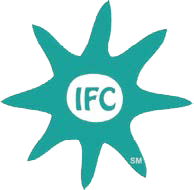Most of the time when people talk about caregiving skills, they are focused on tasks such as managing medications, taking temps and blood pressures, giving injections, and so on. Those things can be important. But in my view the most important caregiving skills are not necessarily of a medical nature. They fall in a category I call ‘soft skills.’ One such soft skill has to do with gathering and processing general, day-to-day information about the person being cared for. Two extremely valuable skills are the ability to accurately observe and report.
Why are observing and reporting important? The caregiver usually spends more time with the care recipient than anybody. So, the caregiver is in a position to gather more information about a patient’s daily routines, habits, complaints, likes and dislikes, mental state, and so on. The caregiver is able to see and note trends in the patient’s overall condition. By contrast, medical professionals see the patient for only a brief period of time during appointments or procedures. Their understanding of the patient is usually limited. Limited understanding can lead to confusion or mistakes. The more accurate information that is available, the better.
This is why we say, “The medical provider is the expert on diagnosis and treatment, but the caregiver is the expert on the patient.” Patients may be less than reliable when reporting on their conditions, whether due to fear, the stresses of illness, faulty memory, medication, pain, or other causes. An observant caregiver can provide valuable details that help medical providers get a full and accurate picture of the patient’s real condition. Accuracy and completeness in describing a patient’s condition can ensure the right choices and decisions are made. This matters in quality of care outcomes. As a caregiver, you won’t be able to remember all these relevant details. No worries; there is help. The “notes” app on a smartphone works fine for this. It is convenient, and reliable.
Caregivers should not underestimate the value of paying attention, taking notes, and being able to give a factual report on their care recipient’s condition. Sensible use of handy technology such as a smart phone can help make this possible. In fact, it can make all the difference.
-Willetha
